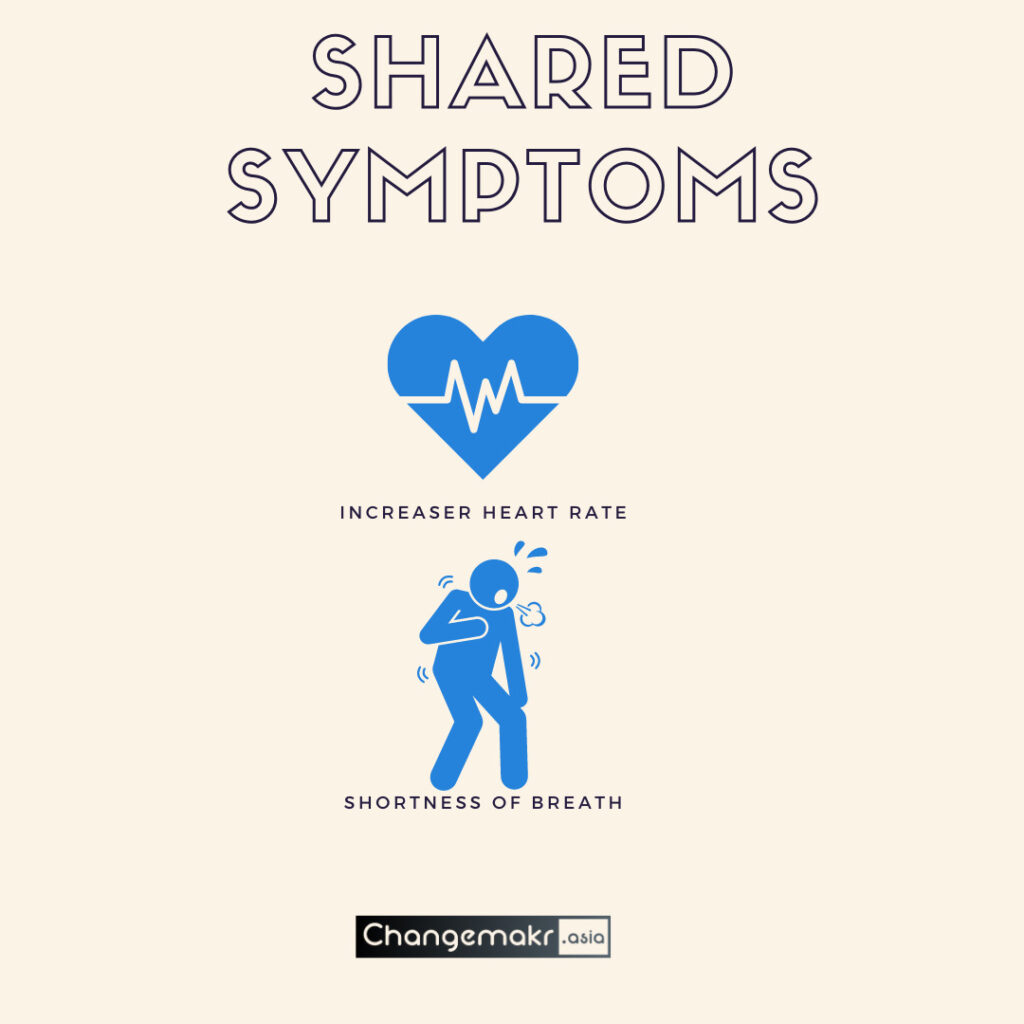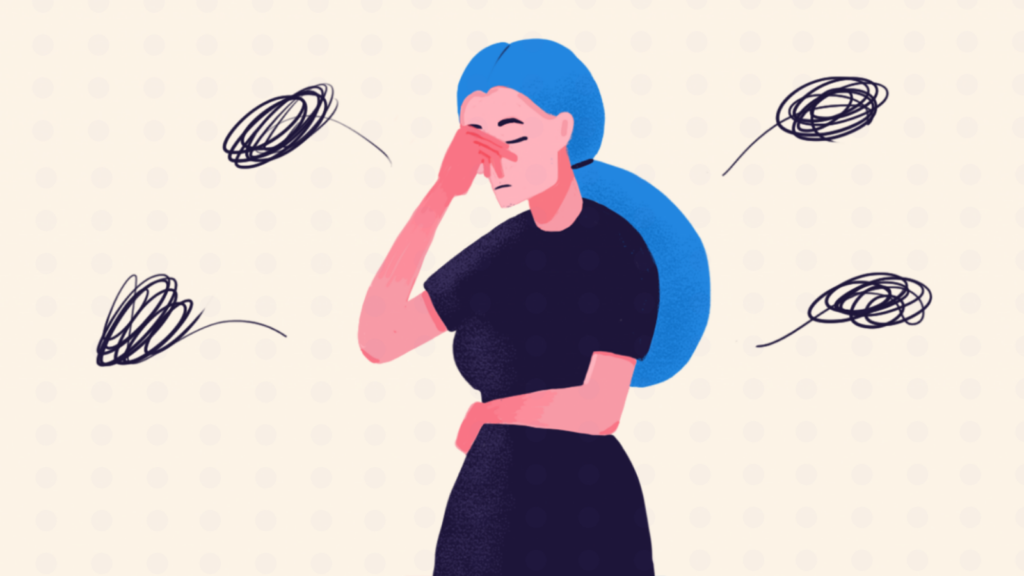Panic attacks and anxiety attacks are not the same. Though these terms are often used interchangeably and some symptoms can be similar, you need to know the difference.
You might heart the terms panic attacks and anxiety attacks terms are used in conversation and often used interchangeably. However these two are not the same.
Here’s our guide to tell the difference between a panic or anxiety attacks
PANIC ATTACKS
Panic attacks usually come on sudden and involve intense and overwhelming fear. It is usually cause a major disruption in your daily activities.
Panic attacks usually accompanied with several physical symptoms such as :
- heart palpitations / pounding heart
- excessive sweating
- trembling or shaking
- sensations of shortness of breath / difficulty breathing
- feeling of choking
- chest pain or discomfort
- nausea or abdominal distress
- feeling dizzy, unsteady, light-headed or faint
- feeling of unreality or being detached from oneself
- fear of losing control or going crazy
- fear of dying
- numbness or tingling sensation / chills / hot flashes
Panic attacks doesn’t always come in reaction to a stressors. it can be unprovoked and unpredictable. Panic attacks can happen to anyone, but have more than one may be a sign of panic disorder. The latest edition of the Diagnostic and Statistical Manual of Mental Disorders (DSM-5) recognises panic attack.
ANXIETY ATTACKS
Anxiety attacks intensify over a period of time. Unlike panic attacks that can happen sudden and extreme, anxiety attacks gradually build up.
Symptoms of anxiety attacks may include :
- muscle tension
- disturbed sleep
- difficulty concentrating
- fatigue
- restlessness
- irritability
- increased startle response
- increased heart rate
- shortness of breath
- dizziness
Anxiety is typically related to something that’s perceived as stressful or threatening. Anxiety attacks can be imild, moderate or severe. Anxiety may be happening the back of your mind as you go about your day.
Anxiety attacks are’t diagnosed in the DSm-5. the DSM-5 does, however, define anxiety as a feature of a number of common psychiatric disorders.
SHARED SYMPTOMS
While these two conditions are distinctively different, some of the symptoms are similar, including increased heartbeat and shortness of breath. In some cases, dizziness is also involved.

TREATMENT & TAKEAWAYS
Whether you are experiencing panic or anxiety attacks, know that help in terms of effective diagnosis and treatment are available. These treatments include therapy, prescription medications, and self help strategies.
Talking to person you trust or doctor about your symptoms is the first step to finding relief.
ALSO READ:
Find out more about panic and anxiety attacks topic during the Singapore Mental Health Film Festival (SMHFF 2020) on 10th October 2020.
Find out our full guide of the event here.



